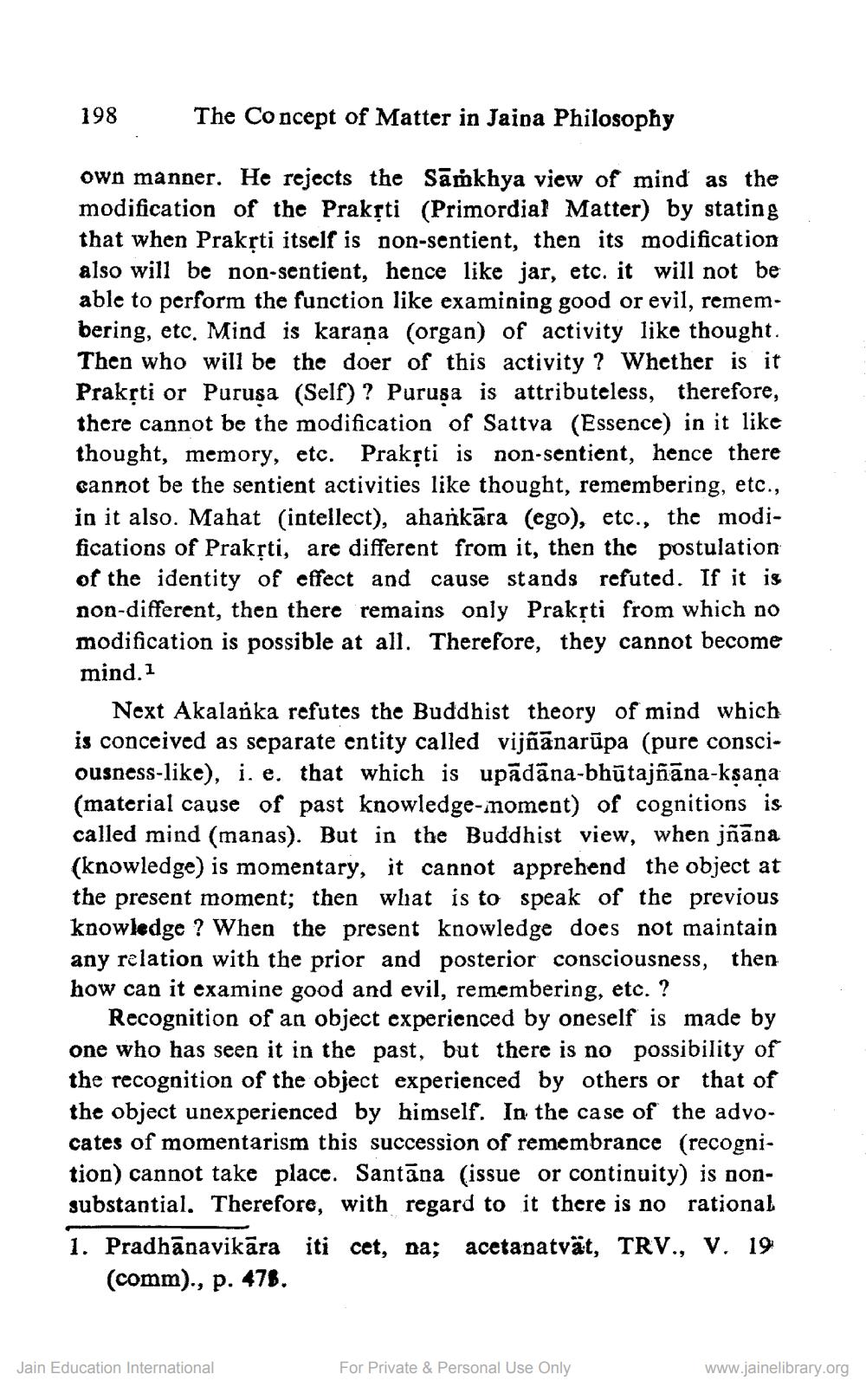________________
198
The Concept of Matter in Jaipa Philosophy
own manner. He rejects the Samkhya view of mind as the modification of the Praksti (Primordial Matter) by stating that when Prakrti itself is non-sentient, then its modification also will be non-sentient, hence like jar, etc. it will not be able to perform the function like examining good or evil, remembering, etc. Mind is karaña (organ) of activity like thought. Then who will be the doer of this activity ? Whether is it Prakrti or Puruşa (Self)? Puruşa is attributeless, therefore, there cannot be the modification of Sattva (Essence) in it like thought, memory, etc. Prakşti is non-sentient, hence there cannot be the sentient activities like thought, remembering, etc., in it also. Mahat (intellect), ahankāra (ego), etc., the modifications of Praksti, are different from it, then the postulation of the identity of effect and cause stands refuted. If it is non-different, then there remains only Prakrti from which no modification is possible at all. Therefore, they cannot become mind. 1
Next Akalanka refutes the Buddhist theory of mind which is conceived as separate entity called vijñānarūpa (pure consciousness-like), i.e. that which is upādāna-bhūtajñāna-kşaņa (material cause of past knowledge-inoment) of cognitions is called mind (manas). But in the Buddhist view, when jñāna (knowledge) is momentary, it cannot apprehend the object at the present moment; then what is to speak of the previous knowledge ? When the present knowledge does not maintain any relation with the prior and posterior consciousness, then how can it examine good and evil, remembering, etc. ?
Recognition of an object experienced by oneself is made by one who has seen it in the past, but there is no possibility of the recognition of the object experienced by others or that of the object unexperienced by himself. In the case of the advocates of momentarism this succession of remembrance (recognition) cannot take place. Santāna (issue or continuity) is nonsubstantial. Therefore, with regard to it there is no rational 1. Pradhānavikāra iti cet, na; acetanatvät, TRV., v. 19
(comm)., p. 478.
Jain Education International
For Private & Personal Use Only
www.jainelibrary.org




